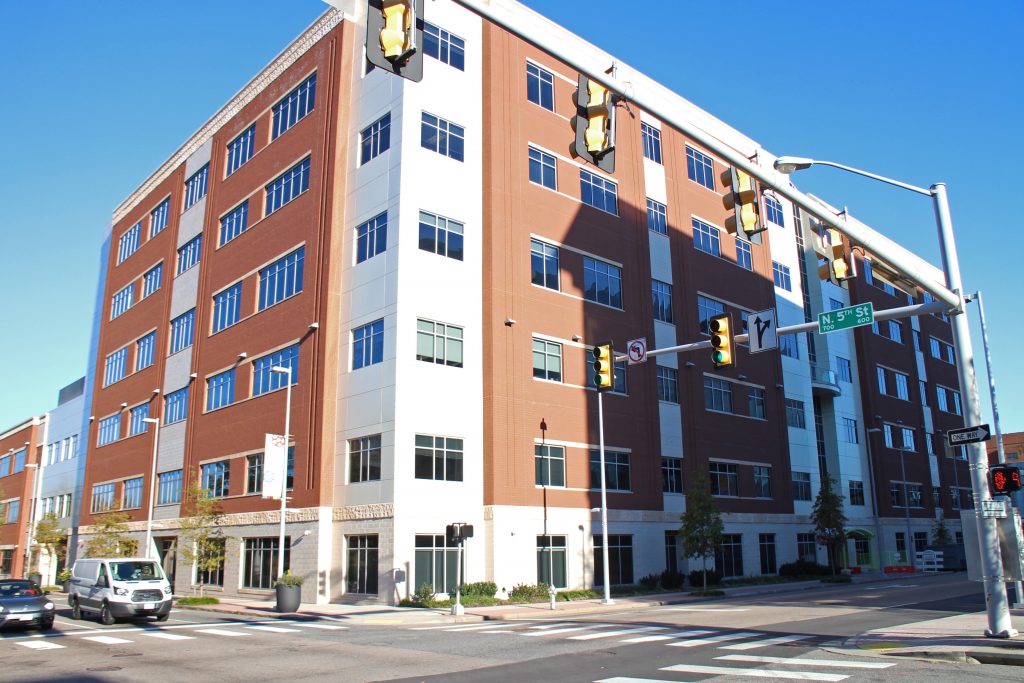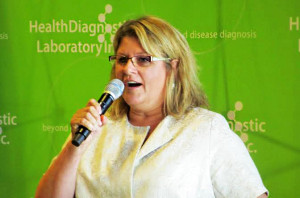As the legal wrangling over Health Diagnostic Laboratory’s bankruptcy case continues, some of the company’s former insiders won a small victory last week.
A federal bankruptcy judge approved a protocol by which HDL’s current and former directors and executive officers can dip into at least a piece of $10 million in insurance policies to help cover their legal defense costs.
The order, approved at hearing on Thursday, will allow each of those covered individuals to access $400,000 of the funds. Then, should one be served with a lawsuit, those funds will be bumped to $800,000 each. The order, which was submitted by HDL and backed by its committee of unsecured creditors, also includes an aggregate limit for all executives at $4 million.
The two insurance policies were purchased from Pittsburgh-based National Union prior to HDL’s June bankruptcy filing and before the embattled downtown company sold the bulk of its assets to its Texas-based competitor.
They would cover certain current and former high-level executives and directors, including Tonya Mallory, HDL’s co-founder and former CEO; Russell Warnick, another co-founder and former chief scientific officer; Satyanarain Rangarajan, HDL’s former chief information officer; and Dennis Ryan, its former executive vice president.
Several of HDL’s former key executives filed objections to the order, requesting modifications such as a higher cap and citing the recent examination launched by a creditors’ committee as a reason for their larger defense costs.
That examination began in late October and involves questioning executives and discerning whether the creditors might be able to recapture large sums of money that allegedly changed hands between HDL and some of the insiders in the lucrative years leading up to company’s downfall.
The committee sent out letters to all those involved in the investigation, warning that it is trying to reclaim $400 million. Those who received letters and filed objections to the insurance policy order included Mallory, Warnick, Rangarajan and Ryan.
Mallory’s lawyer, Michael Hastings of Roanoke-based Whiteford Taylor & Preston, asked for more insurance funds for Mallory since she is already a defendant in two lawsuits, one from insurance giant Aetna and another from the Department of Justice. Hastings asked for at least $1.2 million for Mallory and more if the creditors’ investigation results in a lawsuit.
Mallory had already sought court approval to personally access the insurance funds in November, but that request was denied in favor of a broader order that would apply to all relevant executives.
An attorney for HDL, Jason Harbour of Hunton & Williams, acknowledged that executives can potentially file requests for more funds later, and once Mallory gets close to the cap, “I’m sure we’ll hear from her,” he said.
Dion Hayes of McGuireWoods represented Warnick and told Judge Kevin Huennekens Thursday that the creditors’ investigation is “extremely burdensome” and intrusive. Warnick, Hayes argued, “is not a wealthy individual” and cannot afford the numerous legal fees that come with the investigation. His objection sought an increase in the insurance policy cap to $1.25 million.
Ryan’s representation claimed he should not have been involved in the investigation in the first place. He was questioned in the government’s federal kickbacks investigation of HDL, but the DOJ did not sue him. Rangarajan’s lawyer took the same position, citing difficulties in Rangarajan’s personal life that have caused legal fees from the committee’s investigation to become even more onerous.
But Huennekens approved HDL’s order without any of the modifications requested in the executives’ objections, pointing out that any one of them can return to court and ask for a modification of the protocol, or for more money. The approved order is just a starting point, he said.
As the legal wrangling over Health Diagnostic Laboratory’s bankruptcy case continues, some of the company’s former insiders won a small victory last week.
A federal bankruptcy judge approved a protocol by which HDL’s current and former directors and executive officers can dip into at least a piece of $10 million in insurance policies to help cover their legal defense costs.
The order, approved at hearing on Thursday, will allow each of those covered individuals to access $400,000 of the funds. Then, should one be served with a lawsuit, those funds will be bumped to $800,000 each. The order, which was submitted by HDL and backed by its committee of unsecured creditors, also includes an aggregate limit for all executives at $4 million.
The two insurance policies were purchased from Pittsburgh-based National Union prior to HDL’s June bankruptcy filing and before the embattled downtown company sold the bulk of its assets to its Texas-based competitor.
They would cover certain current and former high-level executives and directors, including Tonya Mallory, HDL’s co-founder and former CEO; Russell Warnick, another co-founder and former chief scientific officer; Satyanarain Rangarajan, HDL’s former chief information officer; and Dennis Ryan, its former executive vice president.
Several of HDL’s former key executives filed objections to the order, requesting modifications such as a higher cap and citing the recent examination launched by a creditors’ committee as a reason for their larger defense costs.
That examination began in late October and involves questioning executives and discerning whether the creditors might be able to recapture large sums of money that allegedly changed hands between HDL and some of the insiders in the lucrative years leading up to company’s downfall.
The committee sent out letters to all those involved in the investigation, warning that it is trying to reclaim $400 million. Those who received letters and filed objections to the insurance policy order included Mallory, Warnick, Rangarajan and Ryan.
Mallory’s lawyer, Michael Hastings of Roanoke-based Whiteford Taylor & Preston, asked for more insurance funds for Mallory since she is already a defendant in two lawsuits, one from insurance giant Aetna and another from the Department of Justice. Hastings asked for at least $1.2 million for Mallory and more if the creditors’ investigation results in a lawsuit.
Mallory had already sought court approval to personally access the insurance funds in November, but that request was denied in favor of a broader order that would apply to all relevant executives.
An attorney for HDL, Jason Harbour of Hunton & Williams, acknowledged that executives can potentially file requests for more funds later, and once Mallory gets close to the cap, “I’m sure we’ll hear from her,” he said.
Dion Hayes of McGuireWoods represented Warnick and told Judge Kevin Huennekens Thursday that the creditors’ investigation is “extremely burdensome” and intrusive. Warnick, Hayes argued, “is not a wealthy individual” and cannot afford the numerous legal fees that come with the investigation. His objection sought an increase in the insurance policy cap to $1.25 million.
Ryan’s representation claimed he should not have been involved in the investigation in the first place. He was questioned in the government’s federal kickbacks investigation of HDL, but the DOJ did not sue him. Rangarajan’s lawyer took the same position, citing difficulties in Rangarajan’s personal life that have caused legal fees from the committee’s investigation to become even more onerous.
But Huennekens approved HDL’s order without any of the modifications requested in the executives’ objections, pointing out that any one of them can return to court and ask for a modification of the protocol, or for more money. The approved order is just a starting point, he said.




